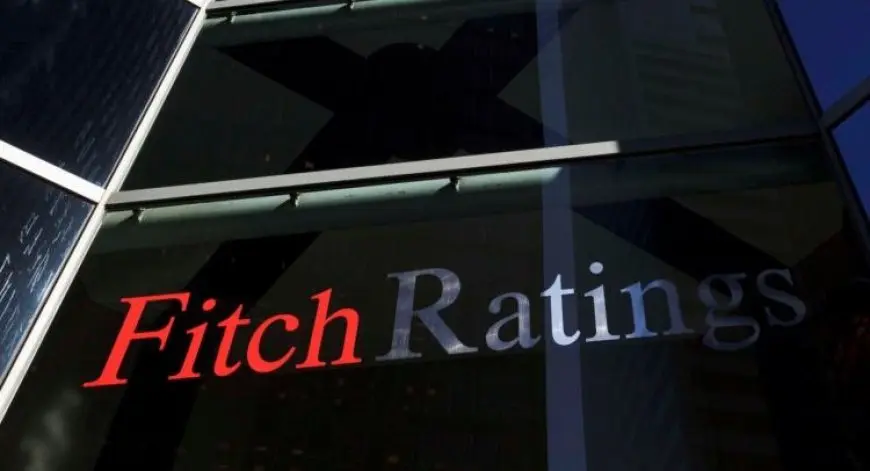For the first time since 2019, Fitch Ratings has raised Egypt’s credit rating from “B-” to “B” with a stable outlook. This upgrade comes amid mounting instability across the Middle East as Israel’s war on Gaza expands to the Lebanese front, while tensions between Israel and Iran remain cautiously managed. This development marks a notable boost for Egypt’s economy, which continues to grapple with challenges such as soaring inflation, particularly in food prices, dwindling citizen purchasing power, and significant reductions in dollar revenues, notably from the Suez Canal and tourism.
Drivers behind the Credit Rating Upgrade
Fitch’s timing for this decision reflects several positive indicators seen in the Egyptian economy over recent months, which can be summarized as follows:
• Reduced External Risks: The external position of Egypt’s economy has solidified in recent months due to several developments, including a foreign investment agreement in Ras el-Hekma, increased foreign investments in local debt instruments, financing secured from international financial bodies like the IMF, and an aid package from the European Union (EU). These achievements were made possible by policy adjustments and enhanced exchange rate flexibility, which is now expected to be more sustainable than before. Additionally, financial risks have been lessened through measures to expand the tax base and reduce the overall budget deficit. Fitch anticipates a notable decline in the interest burden on Egypt’s substantial local debt.
• Growth in Foreign Exchange Reserves: Egypt’s foreign exchange reserves (FER) saw an increase of $11.4 billion in the first nine months of 2024, regaining momentum since February and recording steady growth through September 2024. This recovery reflects Egypt’s efforts to offset the impacts of global crises, starting with the Covid-19 pandemic in 2020, followed by the outbreak of the Ukraine war in 2022—which impacted all sources of foreign currency—and culminating in the exit of foreign financial investments from emerging markets. Figure 1 depicts the evolution of foreign
Figure 1: Evolution of FER (billion dollars)
Source: Central Bank of Egypt (CBE), Monthly Statistical Bulletin
Additionally, the banking sector’s net foreign assets have nearly balanced out, recovering from a $17.6 billion deficit in January 2024. This rebound was fueled by the Ras el-Hekma deal and a projected $17 billion surge in non-resident holdings of local debt since February 2024.
• New Capital Inflows: The funding from international financial institutions includes an expansion of the IMF loan to $8 billion, as well as a €7.4 billion financial package from the EU over three years. Fitch projects that Foreign Direct Investment (FDI) will average $16.5 billion by the end of the current fiscal year (which in June 2025). These capital inflows are expected to help reduce Egypt’s current account deficit, which expanded to 5.4% of GDP last fiscal year but is forecasted to narrow to 5.2% in 2024-2025 and 4% in 2025-2026, with this improvement limited by only a partial recovery in natural gas production and reduced Suez Canal revenues.
• Enhanced Exchange Rate Flexibility: The IMF program supports the Egyptian economy in maintaining a higher level of exchange rate flexibility. Notably, there has been no indication of intervention by the CBE in foreign exchange policy since the official exchange rate dropped by 38% in March 2024.
• Slowing Inflation: Annual inflation eased to 26.4% in September 2024, down from 35.7% in February 2024, and slightly up from 26.2% in August 2024. Food prices increased by 2.6% on a monthly basis, following a 1.8% rise in August, with an annual increase of approximately 27.7%. Figure 2 illustrates the development of the consumer price index.
Figure 2: evolution of consumer price index (points)
Source: Central Agency for Public Mobilization and Statistics, Monthly Bulletin of Consumer Price Index (2024)
Fitch anticipates the inflation rate will ease to 12.5% by the end of the fiscal year 2024-2025, and further to 10.6% during 2025-2026, driven by widespread exchange rate stability. It also forecasts a reduction in the key interest rate to levels aligned with a real rate of 4%, following a series of 800 basis point hikes in the first quarter of 2024.
• Robust Government Policies: Financing for large capital projects in Egypt has slowed, and a decree has been issued to cap total public investment at EGP 1 trillion. Policies aimed at improving tax administration, increasing the value-added tax, and cutting fuel subsidies are intended to curb the general government deficit, which exceeded projections in the financial year 2024 by around 3.4% of GDP.
Existing Risks
Despite Fitch’s optimistic outlook for Egypt’s economy, its rating action commentary highlighted several ongoing risks that the country continues to face in the current and coming period, the most significant of which are:
• Geopolitical Risks: The intensification of regional conflicts poses a significant threat to Egypt’s economy, particularly due to its impact on declining Suez Canal and tourism revenues. Fitch projects that Suez Canal revenues will steadily improve, reaching approximately half of the fiscal year 2023 levels by the close of fiscal year 2026. Furthermore, the risks associated with regional escalation are heightened as Egypt receives more refugees, which could exacerbate inflation and unemployment while hindering the economic reform process.
• Moderate Economic Growth: Fitch projects GDP growth to rise from 2.4% in fiscal year 2024 to 4% in fiscal year 2025 and 5.3% in 2026. However, the sustainability of this growth is at risk due to the expanding regional conflict in the Middle East. Fitch emphasizes that structural reforms, along with boosting the activity and competitiveness of the private sector, are essential for fostering sustainable growth and avoiding medium-term external imbalances. It also notes that, despite recent announcements to renegotiate certain goals and extend some timelines, the current Egyptian government, which has taken on a more technocratic approach, remains broadly committed to the IMF’s conditions.
• Rising Public Debt: Fitch forecasts that government debt, as a percentage of GDP, will increase to 78.9% by fiscal year 2026, significantly higher than the average of 56.4% for countries with a “B” credit rating. This rise is attributed to higher interest rates on debt, increased off-budget financial spending, and growing public sector indebtedness.
Positive Implications
Egypt’s credit rating upgrade comes despite rising tensions in the Middle East, reflecting the success of the country’s economic policies, as well as the positive impact of FDI, particularly the Ras el-Hekma project. This upgrade may boost demand for dollar bonds and Egyptian treasury bills, enhancing the external position of the Egyptian economy, increasing cash reserves, and supporting local currency stability. The upgrade serves as a renewed vote of confidence in the resilience and adaptability of the Egyptian economy in managing various crises.
Furthermore, the credit rating upgrade may also pave the way for increased FDI, as such reports convey to international investors Egypt’s stable economic conditions. This could lead to the creation of more job opportunities, enhanced living standards for citizens, and new avenues for collaboration with international financial institutions. Additionally, it would help ease the financial burden on the state by lowering the cost of external borrowing.
Notably, in October, Standard & Poor’s also reaffirmed its positive outlook for Egypt while maintaining its debt rating at “B-/B.” The agency highlighted that the positive expectations reflect the potential for further improvements in Egypt’s external and financial positions.
In conclusion, the decision to raise Egypt’s credit rating coincides with the IMF’s fourth review of Egypt’s economic reform program, which included the disbursement of a $1.3 billion tranche from the IMF’s loan. This further strengthens confidence in the Egyptian economy, particularly in light of positive statements from IMF Director Kristalina Georgieva regarding the country’s economic reforms since 2016.












